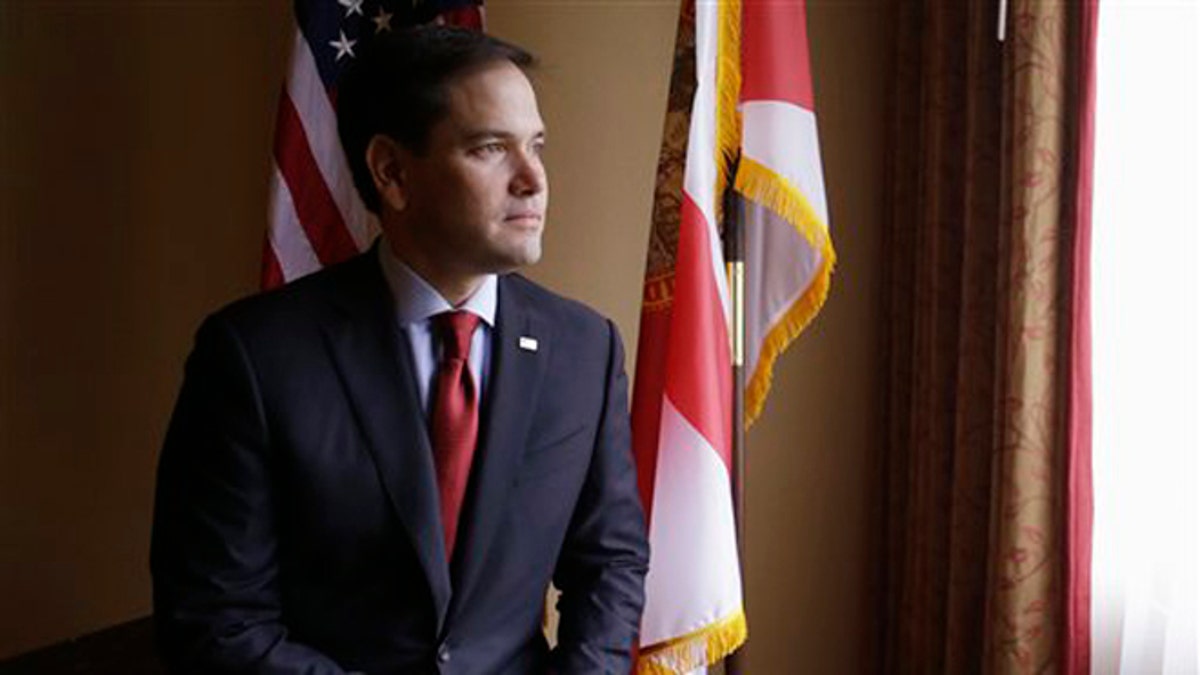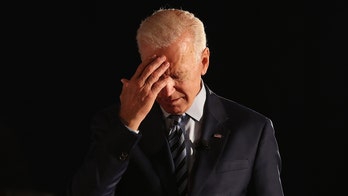
Sen. Marco Rubio, R- Fla. (AP)
Ted Cruz got the endorsement of former GOP presidential rivals Jeb Bush, Carly Fiorina and Scott Walker. Donald Trump gained the endorsement of former candidate Ben Carson.
Sen. Marco Rubio, however, has yet to endorse Cruz, Trump or Ohio Gov. John Kasich, who has won only his own state and has less delegates than even the Florida senator, who withdrew from the race in mid-March.
The reason, Politico reports, is that Rubio is taking a wait-and-see approach.
Rubio told supporters he was inclined to endorse Cruz, whom he has called the only true conservative still in the race, if the Texas firebrand requests it and if it would genuinely help his shot at the nomination, according to Politico.
At the same time, Rubio has been more charitable recently when speaking about Trump, with whom he exchanged particularly nasty barbs in the weeks before dropping out of the race.
“At this point, No. 1, it’s not a year where endorsements matter very much,” Rubio told Politico.
“And No. 2, I’ll just let it play itself out and work through it. I really want to come back and focus 100 percent on my work in the senate.”
Rubio has taken steps clearly meant to help Cruz and Kasich thwart Trump, such as giving the Cruz campaign access to his list of fundraisers, taking his name off the ballot in states where it might help Cruz and making moves to keep particular delegates committed to him in order to undermine Trump's possibility of wooing them to his camp, Politico reported.
Still, the U.S. senator from Florida seems to be approaching his endorsement deliberately and analytically, with eye toward influencing the general election while not hurting his future prospects – which, after all, may very well include another presidential run.
“Marco has significant political capital – his delegates, the delegates he won and those delegates who would show up at the convention and, when unbound from another candidate, would listen to what Rubio would say,” a person identified by Politico only as a Rubio insider was reported as saying.
“Marco wants Donald to lose. If he thought his endorsement would help in California or in Indiana, which it won’t, then he would probably do it,” the source told Politico.
“But what Marco isn’t going to do is just endorse Ted, watch Trump win anyway, and then, in four years, watch Cruz use Marco’s endorsement against him if they both run for president again,” the source said.
Rubio has raised eyebrows in recent days with somewhat positive comments about Trump quite – a real departure from the strong personal condemnations both candidates hurled at each other.
In an interview last week, Rubio said Trump’s “performance has improved significantly."
And in another interview, he said it was almost certain Trump would lock up the nomination.
“If he keeps winning delegates like he did the other night in New York, I think he's going to reach that number," Rubio said on Univision's "Al Punto Florida" show. "But let's see. There are still other states to go."
He also told Miami radio host Jimmy Cefalo of WIOD that if Trump gets close to the required 1,237 delegates, he should get the nomination.
“I do think it's valid to argue to delegates, 'Look, let’s not divide the party. You have someone here who has all these votes, very close to getting 1,237. Let’s not ignore the will of the people, or they’re going to be angry,'” he said. “And delegates may decide that on that reason, they decide to vote for Donald Trump. But if they don’t, it’s not illegitimate in any way.”
Rubio added, "That's why we elect delegates. That's the meaning of being a delegate is choosing a nominee who can win."
Asked if he would support Trump, Rubio said: “I’ve always said I’m going to support the Republican nominee, and that’s especially true now that it’s apparent that Hillary Clinton is going to be the Democratic candidate. My differences with Donald Trump are well documented.”




